4-Axis vs 5-Axis Dental Milling Machines: Which Is Worth Investing In 2026?
2026-01-13
2025-04-06
In the dental industry, hygiene and safety are paramount, especially when it comes to denture processing. Denture laboratories play a critical role in ensuring that the products they produce meet high-quality standards, both in terms of functionality and patient safety. This blog will delve into the hygiene standards that denture laboratories must adhere to, the best practices for maintaining safety, and the importance of compliance with industry regulations.
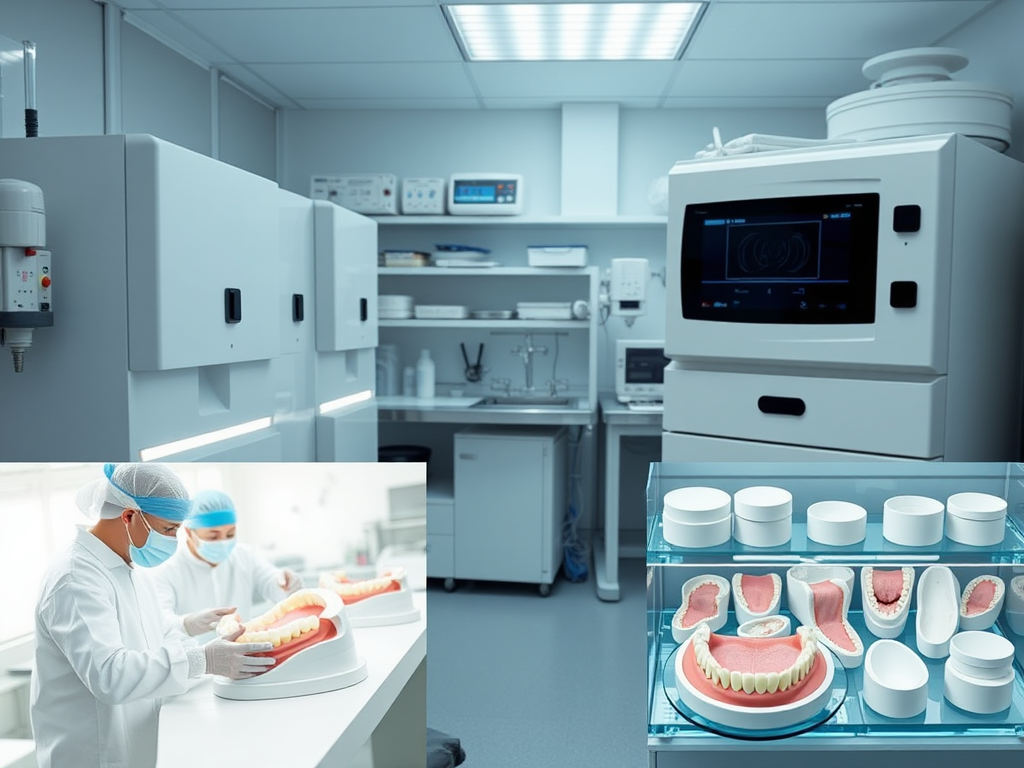
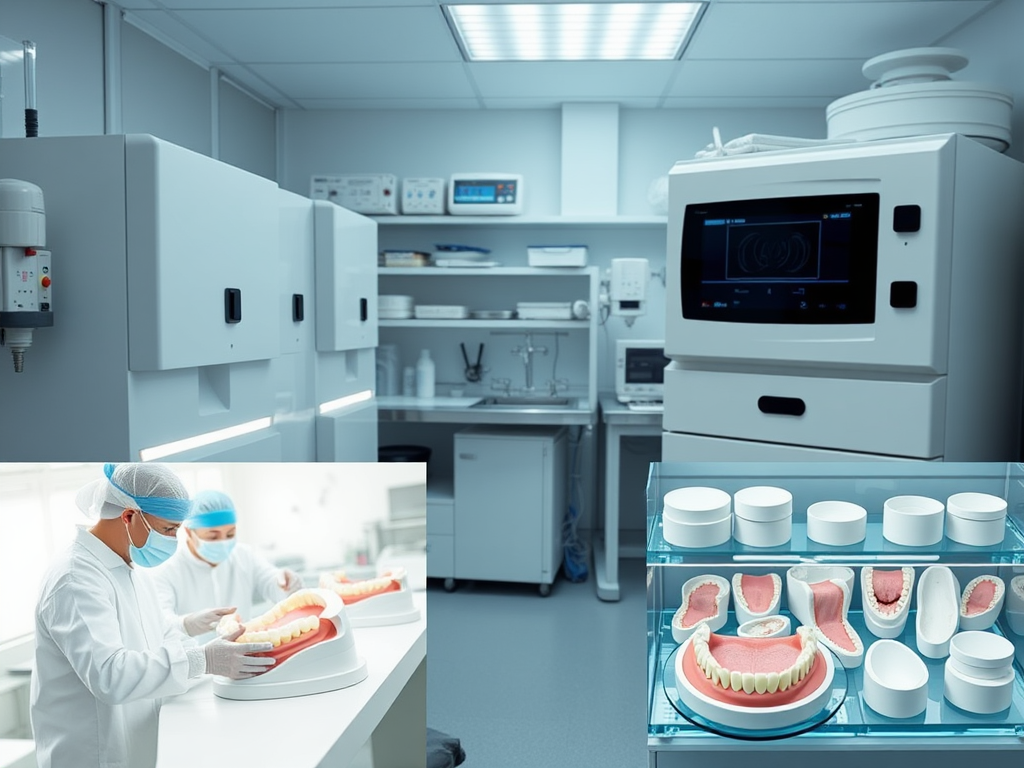
Protecting Patient Health
The primary objective of hygiene standards in denture laboratories is to protect patient health. By adhering to stringent hygiene protocols, labs can minimize the risk of cross-contamination and infections that could arise from improperly sanitized equipment or materials.
Maintaining Quality
Hygiene standards are not only vital for safety but also for maintaining the overall quality of dentures. Contaminants can affect the materials used in denture fabrication, leading to subpar products that may not fit correctly or last as long as intended. Implementing comprehensive hygiene practices helps ensure that patients receive the highest quality prosthetics.
1. Sterilization of Equipment
Sterilizing dental instruments and equipment is fundamental in preventing the spread of bacteria and pathogens. Denture labs must employ effective sterilization methods, such as autoclaving, to ensure that all tools used in the production process are free from contaminants.
· Best Practice: Regularly schedule maintenance and calibration of sterilization equipment to ensure optimal performance. Keep detailed logs of sterilization cycles and results for compliance audits.
2. Material Safety
The materials used in denture fabrication must comply with safety standards set by regulatory bodies. Engaging with suppliers who provide certified and non-toxic materials is crucial in ensuring that the final product is safe for patients.
· Best Practice: Conduct thorough research on material suppliers and request safety data sheets (SDS) for the materials used. Integrate a system for tracking material quality and compliance.
3. Cleanroom Environments
Many denture laboratories employ cleanroom environments where excess dust, airborne microbes, and other contaminants are controlled. Such environments are essential for maintaining the integrity of the fabrication process.
· Best Practice: Invest in advanced air filtration systems and establish protocols for entering and exiting cleanroom areas. Ensure that staff are trained in appropriate cleanroom etiquette.
4. Personal Hygiene Protocols
Laboratory staff must adhere to strict personal hygiene protocols to further ensure the safety of denture production. This includes regular handwashing, using gloves, and wearing protective clothing.
· Best Practice: Conduct regular training sessions on hygiene protocols and provide easily accessible handwashing stations and personal protective equipment (PPE) for employees.
Regulatory Frameworks
Denture laboratories must comply with regulations set forth by industry authorities, such as the Food and Drug Administration (FDA) in the United States or equivalent organizations globally. These regulations dictate how dental laboratories should operate, including health and safety standards.
· Best Practice: Stay informed about changes in regulations and standards in the dental industry. Designate a compliance officer to oversee adherence to industry guidelines.
Documentation and Record-Keeping
Maintaining accurate documentation and records is critical for demonstrating compliance during inspections and audits. This includes product testing results, sterilization logs, and training records.
· Best Practice: Implement a digital record-keeping system that allows easy access to documents and provides reminders for necessary updates and reviews.
Hygiene standards in denture laboratories are essential for ensuring the safety and quality of dental prosthetics. By adhering to rigorous sterilization methods, maintaining cleanroom environments, and complying with industry regulations, denture labs can significantly reduce the risk of contamination and enhance patient safety. Moreover, a commitment to hygiene standards contributes to the overall success of the dental practice by fostering patient trust and confidence.
As the dental industry continues to evolve, prioritizing hygiene in denture processing will remain a crucial factor in delivering safe and effective products. Denture labs must continuously educate their staff, invest in appropriate technologies, and stay compliant with industry standards to ensure that they provide the best possible outcomes for their patients.

Dry & wet milling for zirconia, PMMA, wax with auto tool changer.
learn more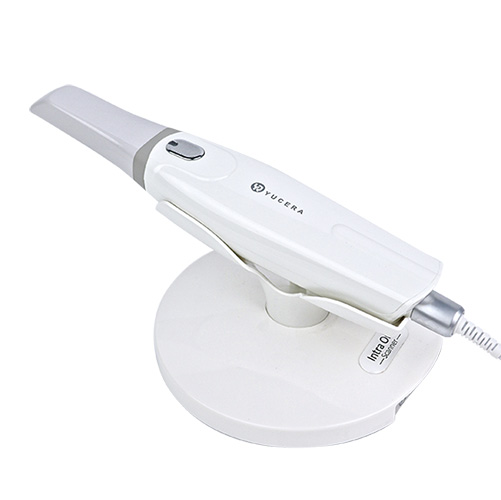
High-precision 3D scanning, AI calibration, full-arch accuracy.
learn more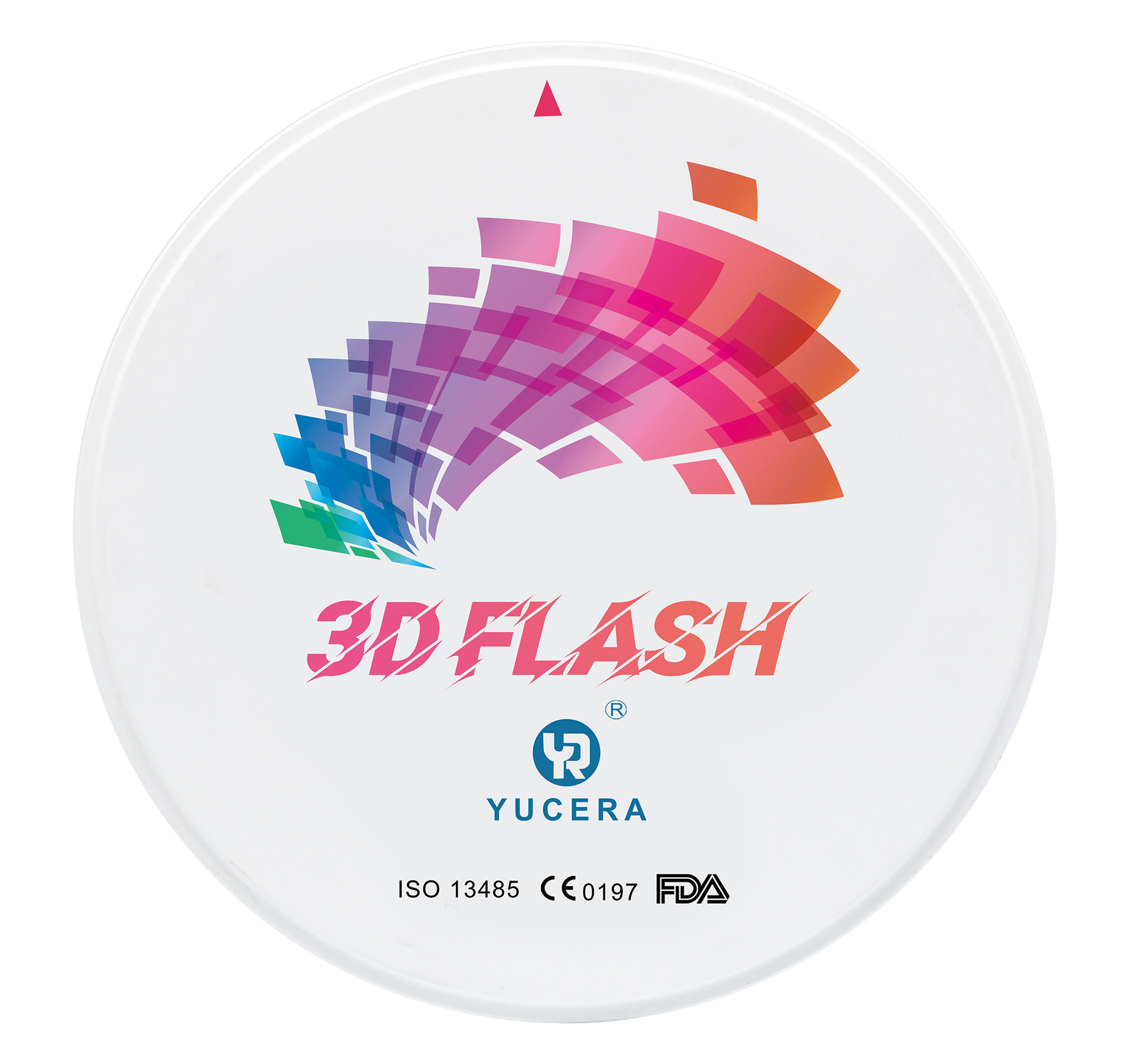
40-min full sintering with 57% incisal translucency and 1050 MPa strength.
learn more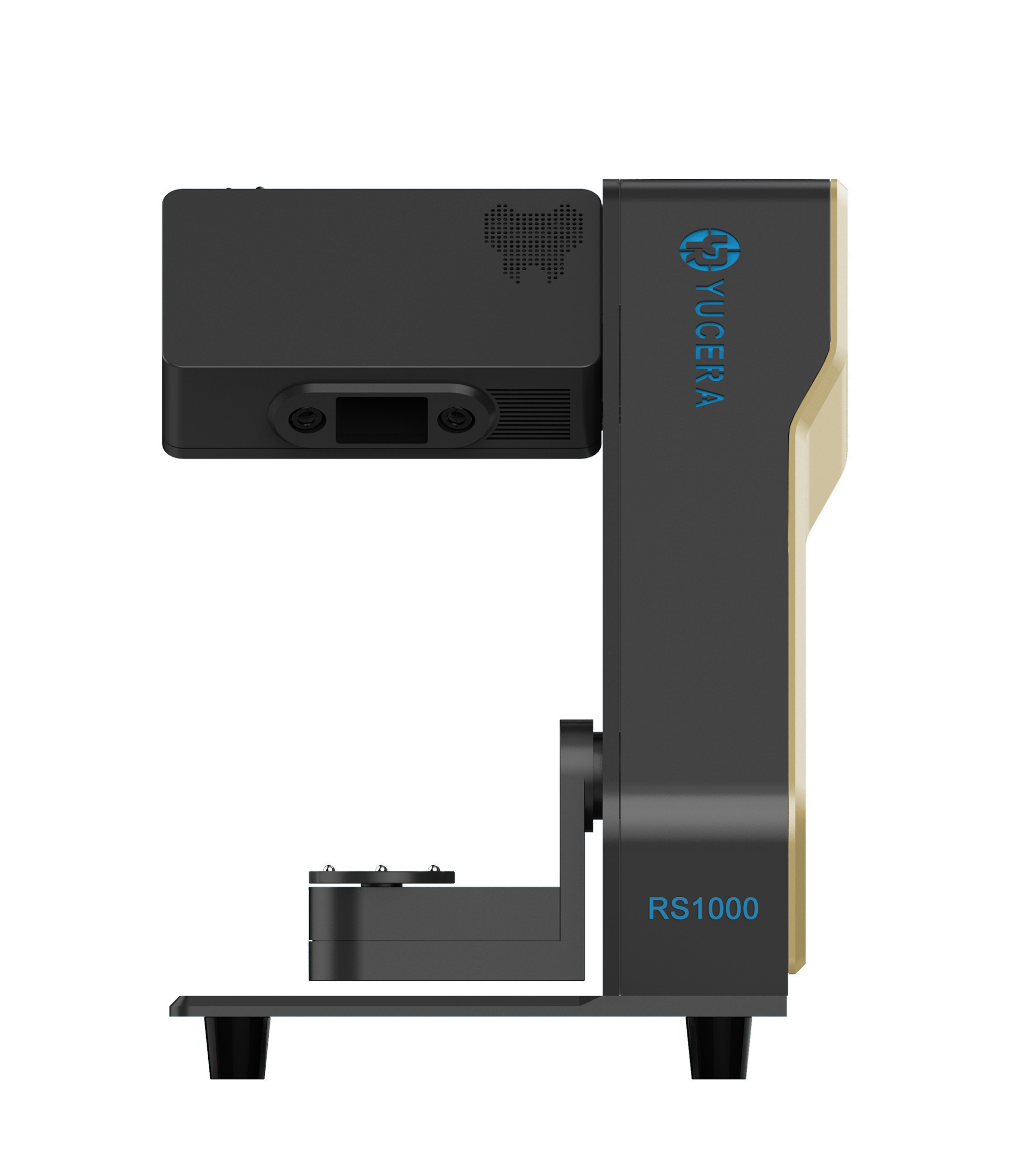
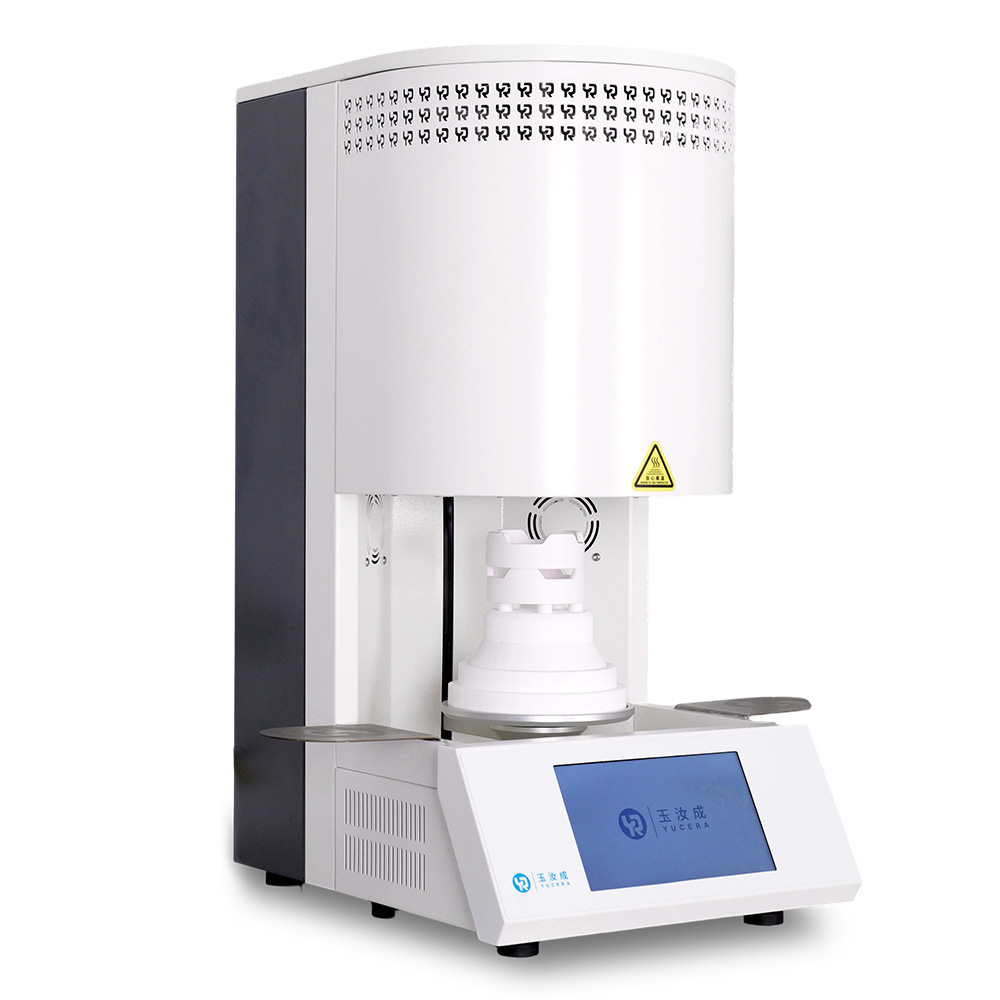
40-min cycle for 60 crowns, dual-layer crucible and 200°C/min heating.
learn more
High-speed LCD printer for guides, temporaries, models with 8K resolution.
learn more